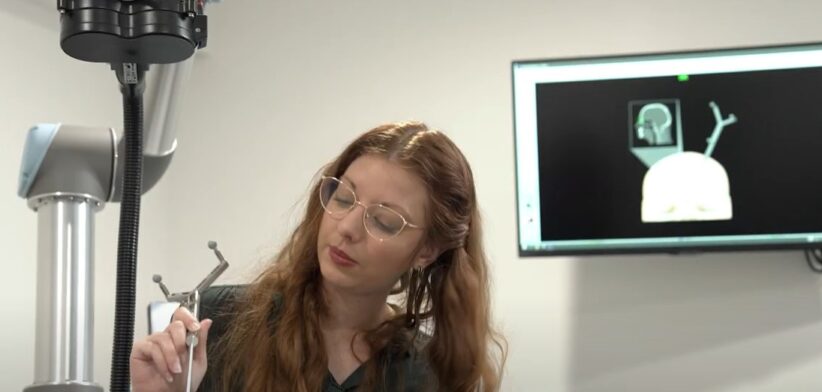Queensland researchers have developed a new targeted brain stimulation therapy to treat depression.
The team at QIMR Berghofer have demonstrated the effectiveness of personalised transcranial magnetic stimulation (TMS) therapy which targets specific areas of the brain.
QIMR Berghofer neuroscientist Luke Hearne said the new approach used advanced brain imaging to tailor treatment to an individual’s unique brain anatomy and connectivity.
Dr Hearne said it offered a new treatment option for people who had had little success with other therapies.
He said TMS was a non-invasive brain stimulation technique that targets specific areas of the brain to regulate neural activity associated with brain disorders.
“Unlike traditional TMS methods that stimulate a broad area, this personalised approach identifies the optimal stimulation site on the brain for each patient based on their own MRI scans.”
Dr Hearne said over the past three years, the team at QIMR Berghofer’s Clinical Brain Networks laboratory had treated individuals with depression by scanning their brains via MRI, then offering 20-30 stimulation treatments over several weeks.
“Just over half of the patients reduced their symptoms by more than 50 percent, and around one-third achieved full remission.
“This is particularly exciting for people who have not responded to standard treatments like medication or talk therapy.”
Dr Hearne said personalisation was important in improving outcomes.
“The brain is incredibly complex, and even millimetre-level adjustments in stimulation sites on the surface of the brain can make a significant difference to clinical outcomes.
“By tailoring TMS to each person’s unique brain structure, we’re seeing much better responses compared to traditional approaches.”
Associate Professor Luca Cocchi, who oversaw the research, said the study also revealed that patients with depression responded better than those with complex conditions such as bipolar depression or neurological disorders.
“This work is a testament to how cutting-edge neuroscience can directly improve lives. Translating research into clinical practice is always challenging, but seeing patients experience relief after years of struggling with depression is deeply gratifying for our team.”
Read the full study: Clinical and Neurophysiological Effects of Robotically Delivered fMRI-Guided Personalized Transcranial Magnetic Stimulation Therapy for Depression.








